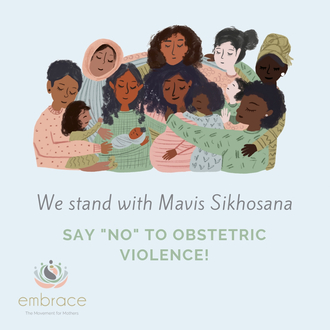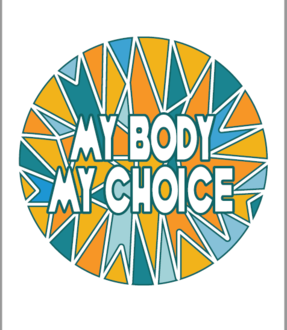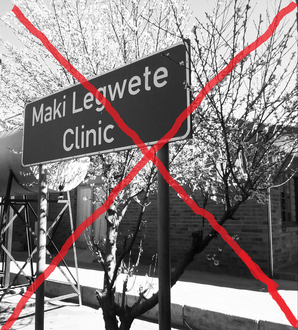- Featured
- Clean air
- Climate justice
- Consumer Rights
- Corporate Accountability
- Data access
- Early Childhood Development
- Economic fairness
- Education
- Electoral fairness
- Environmental justice
- Food justice
- Gender based violence
- Grants/social assistance
- Health
- Housing and infrastructure
- Industry interference
- Land Justice
- LGBTQIA+ rights
- Media/ information access
- Public transport
- Racism
- Reparations
- Safety
- Sanitation
- Service Delivery
- Sexual and Reproductive Rights
- Social justice
- Unemployment
- Womxn's rights/ gender equality
- Workers' rights
- More
-
Tell President Ramaphosa to help stop conflict related sexual violence in South SudanSouth Sudan is Africa’s youngest country having gained independence 8 years ago from Sudan. A civil conflict broke out in 2013 and it is estimated that 400,000 people have been killed during this war. Rape is being used as a weapon of war in South Sudan by soldiers from all sides of the conflict. This means thousands of women and children in South Sudan are not safe. Time and again we have heard horrific stories of rape including of children as young as 10 years and grandmothers over the age of 65 years. Even more horrifying is UNICEF’s estimates that as many as 25% of the victims of conflict related rape and other forms of sexual violence in South Sudan are children. As South Africans, we are deeply concerned about the conflict related sexual violence in South Sudan which has spiked dramatically after the signing of the September 2018 peace agreement. We are shocked by the outright dismissal and denial of conflict related sexual violence cases by South Sudanese authorities which encourages perpetrators and further traumatises the survivors of such violence. We believe in Ubuntu, sisterhood and the Pan-African spirit that binds us with South Sudan under the African Union and choose today to stand in solidarity with the women and children of South Sudan. We call on President Ramaphosa and International Relations Minister Naledi Pandor to work on our behalf towards ending conflict related sexual and gender-based violence in South Sudan. Sign this petition and stand in solidarity with the women of South Sudan fighting sexual and gender-based violence. Your voice will join thousands more who are calling on President Ramaphosa and International Relations Minister Naledi Pandor to use South Africa’s leadership position in the African Union and the UN Security Council to help bring about real and lasting peace in Africa’s youngest nation.1,043 of 2,000 SignaturesCreated by Khaliel Moses
-
Tell Panyaza Lesufi to remove any hair policies in Gauteng schools that are discriminatorySchools are institutions of learning and not only learning about modules placed in curriculum's but also raising and emphasizing the importance of self-discovery and identity. Students need to learn more about themselves as well as their cultures and then teach others about it. When we teach young black girls that their hair has to be changed so they can suit a certain school culture what are we teaching them about themselves and how they were born? Schools should embrace the black culture and not try to change it. Most of these schools implemented their hair policies way before African black children were allowed into the then-White-only schools so they are not very inclusive of the black culture and the way African hair grows.Were the hair policies of schools reviewed after Apartheid and changed to suit everyone's hair needs? Each school can have different policies and school cultures as long as black pupils do not feel like they are being prejudiced against how they look as Africans. Schools need to also enforce educating themselves on African black cultures and how the African hair grows if they continue to enforce hair policies. [1] Pretoria Girls High pupils were victims of racism-MEC, Lizeka Tandwa for News24, 2016/12/03 [2] Gauteng High School embroiled in natural hair scandal, Silindelo Masikane for the eNCA, Monday 11, March, 2019 [3] Several State & Private Schools have bans on Dreadlocks. Afros and braids, Prega Govender for Mail & Gaurdian, 02, September, 2016 [4]School Governing Bodies: Play your part, Department of basic education 2019 [5] Lesufi gives Kempton Park school deadline to change hair policy, Nation Nyoka for News24, 25/07/2017415 of 500 SignaturesCreated by Matheko Ramolefo
-
Letter to the Editorial Board of Aging, Neuropsychology and CognitionThe issue is important because the article is published as scientific research but draws on colonial stereotypes of African women, and 'Coloured' South African women specifically, as intellectually deficient. The article relies on flawed methodology and science, perpetuating harmful, racist stereotypes.10,276 of 15,000 SignaturesCreated by Barbara Boswell
-
Tell the 3 major political parties to support increasing sexual and reproductive health budgetYOUR CALL TO REPRODUCTIVE JUSTICE: WE ARE WATCHING AND LISTENING Reproductive Justice [1] is defined by three principles: The right to have a child; the right not to have a child; the right to parent children in safe and healthy environments. In 1997 South Africa enacted a globally renowned law on abortion. The Choice on Termination of Pregnancy Act (CTOPA) aimed to address the imbalances of the past where 429 black women died each year from lack of access to these basic health services [2]. The political act of passing this legislation was historical in laying the framework for Reproductive Justice in South Africa. Having an act such as CTOPA in place meant that women and pregnant people would be free to make their own decisions about their bodies and their futures. 22 years later, many people still struggle to access these basic services. But with national elections coming up, we have a chance now to ensure the 5 major political parties commit to lobbying for an increase in the sexual and reproductive health services budget. There is limited information on how people can access abortion services, decreases in the amount of contraceptives available and currently only 7% of healthcare facilities provide abortion services [3]. Because of this, many pregnant people are either forced to turn to unsafe and illegal abortion practices or suffer the physical, emotional and mental harm that comes with bearing an unwanted pregnancy. Leading up to elections, political parties will be running election campaigns focused on winning votes. If they want our votes, they will need to prove to us that they care about the lives of all people seeking access to Sexual & Reproductive Health services. We have a chance now to pressure the 5 major political parties into using their power as members of Parliament to address these issues by ensuring the budget for sexual and reproductive health services is increased. This money will be used to create sexual reproductive justices and access to these services for ALL. This will ensure greater access to public information on safe abortion procedures, fully stocked healthcare facilities with affordable and free contraceptives and more healthcare facilities nationwide providing safe, legal abortions. Sign and join our campaign to ensure sexual reproductive justice for all. If enough of us come together and flood the email inboxes of the 3 major political party leaders, they will have no choice but to support increasing the sexual and reproductive health budget. We have written an email that you can send to one, or all, of the political parties. Here is the email and each political party's email address: ANC- [email protected] EFF- [email protected] DA- [email protected] "Dear Political Party Leader (Mmusi Maimane, President Cyril Ramaphosa and Julius Malema) I am joining other South Africans in calling on you provide leadership on reproductive justice. Reproductive Justice is defined by three principles: The right to have a child; the right not to have a child; the right to parent children in safe and healthy environments. We need you to support an increase in the sexual and reproductive health budget for 2020 and use your power as a member of parliament and political party leader to lobby for an increase before voting day on 8 May. Currently there are decreases in the amount of contraceptives available, there is limited information on how people can access abortion services and currently only 7% of healthcare facilities provide abortion services. Because of this, many pregnant people are either forced to turn to unsafe abortion practices or suffer the physical, emotional and mental harm that comes with bearing an unsupported pregnancy. A budget increase will ensure that there is sexual reproductive justice and access to these services for ALL. We need health managers to lead and to not obstruct access to reproductive justice services. The money should be spent on ensuring that public healthcare facilities are always fully stocked with contraceptives, health professionals are trained in the provision of sexual and reproductive health services and greater access to information on safe abortion procedures and increased delivery of public services of abortion provision. It is time you took sexual and reproductive health seriously. If you want my vote, you must prove to me that you truly care about the people most affected by the lack of sexual and reproductive health services. The Choice on Termination of Pregnancy Act (CTOPA) aimed to address the imbalances of the past where 429 black women died each year from lack of access to these basic health services. 25 years have passed and to get our vote we want to hear your political commitment to real implementation. I trust you will hear our voices." [1] https://www.ucpress.edu/book/9780520288201/reproductive-justice [2] https://www.ajol.info/index.php/samj/article/view/157185 [3] https://amnesty.org.za/research/barriers-to-safe-and-legal-abortion-in-south-africa771 of 800 SignaturesCreated by Khaliel Moses
-
Save the Athlone Cultural Hub and the CWD building at 146 Lawrence rd, AthloneIn the days of apartheid, when many turned their backs on activists, the Catholic Church provided refuge, provided a source of comfort to the families of Coline Williams and Robert Waterwich. The youth from UDF's Wesco (Western Cape Student Congress) met regularly at the CWD premises, as did YCW (Young Christian Workers) and several other youth and community organizations. Activists on the run from the apartheid state were given refuge. It is now a space for the working class to engage in cultural activities such as music, art, yoga, the study of history and the history of Table Mountain. The CWD Executive wants to close the building. It is already a community that has few spaces for Culture. It should remain a living cultural space and heritage site. Please sign and share this petition. In addition, for over 50 years the CWD projects operated from this centre and elsewhere. Tens of thousands of people were assisted. There were social workers; there was training for Early Childhood Development. There was a sewing project that brought together refugees with local workers. It housed the science laboratory of the legendary St Columba's school. The residence for the teachers was housed upstairs on site. Over the past three years the then Arts and Culture manager, Andre Marais has managed to build up the Athlone Cultural Hub. Under his stewardship the Western Province Mountain Club is now housed in the building. They take youth of the area up Table Mountain and give talks about the history of the mountain. The Academy of Music has their administrative office on the premises. A jazz band, with local artist Trudy Rushin, have their practice sessions on site. The Revolutionary Yoga group operates at the Hub. There is also a dance club. There is a library of 30 000 classics and 10 000 movies. There have been several cultural activities held. There have been several education schools run by UCT Summer School. There is a corner for volunteers to read children stories. A memory garden has been started for Coline Williams and Robert Waterwich, who were killed in the struggle against apartheid. Robert was a former student of St Columba's and he would have used the laboratory. On the 13th February 2019 three rooms were renamed after the Trojan Horse 3. The library has been named after Shaun Magmoed. The section where the social workers used to operate, in front, has been named after Michael Miranda, while the upstairs section which used to be the dormitory of the teachers and lately was the section that housed the ECD, was named after Jonathan Claasen. Retired teachers are prepared to run free maths and science classes on site. A local resident is prepared to offer free carpentry classes. There is a strong case for the building to be declared a living heritage site, especially now that a funder has stepped forward that has offered to cover running costs, including that of Cultural Hub manager. Help us keep the building open.456 of 500 SignaturesCreated by Save the Athlone Cultural Hub
-
Gender Wage Gap: Banyana Banyana must get equal pay!South African women earn 27% less than men [2]. Our country already faces so many gendered social and economical issues and the gender pay gap also contributes to these issues. Our national women’s soccer team Banyana Banyana is just one example of women who work hard, yet they still remain underpaid and underfunded compared to Bafana Bafana (national men’s soccer team). If the argument has been that men work harder than women and “deserve” a higher pay, then without a doubt our women’s team have proven themselves to have worked harder than the men, but the willingness to increase their salaries still remains low. Earning an equal salary should not be about one’s gender, it should be about the fact that people do the same work in the same industry, and therefore should be paid the same. The time is now - SAFA must take action and pay the women what they deserve. References: [1] Jordaan calls for help to boost Banyana salaries amid outcry, Matshelane Mamabolo for IOL, 30 November 2018 [2] Do South African women earn 27% less than men?, Gopolang Makau for Africa Check, 27 September 2017700 of 800 SignaturesCreated by Yolanda Dyantyi
-
Take Action Against Obstetric Violence at Middelburg Hospital in MpumalangaThe conditions under which mothers birth are incredibly important for the health of both mothers and babies. Birth is a mother's first in-person interaction with their babies and we owe it to them both to facilitate a calm, quiet and respectful space for that.159 of 200 SignaturesCreated by Rumbi Görgens
-
Government must ensure there are Sexual Offences Units at all institutions of higher learningA Sexual Offences Unit will ensure that survivors of gender based violence receive specialised and sensitive support and resources that will help towards their healing journey. Campuses that have an already existing ‘gender office’ need to change their systems so that they serve the concerns of everyone on campus, and are in line with the proposed Sexual Offences Unit. The Black Womxn Caucus, an intersectional women’s organisation at Wits University have called for a ‘rapid response rape team’ for gender based violence to be established on the campus. The movement advocates for a thorough understanding of gender violence as it occurs in many forms and in many spaces, and reinforces the violences that womxn and gender non-comfornimg bodies are subjected to in this country. As the number of rape, sexual abuse and killing of womxn and children in this country continues to increase so does the call from those most affected by violence in our society to organise ourselves to fight gender based violence. The Black Womxn Caucus insists that if their Vice Chancellor at the time, Adam Habib, among others, were able to establish a rapid response team [4] to clamp down on student protest action following the #FeesMustFall movement, there is no reason the university should also prioritise the establishment of a ‘rapid response team’ to address gender violence on campus. The Sexual Offences Units should include: support staff who encourage everyone on campus to go for prosecution through reporting their cases; this includes a 24 hour psychologists available at all times for emergencies, and a space for activists to assist in sharing insights to developing better models aimed at reducing all forms of violence on campus. This unit must also represent the different socio-economic backgrounds of members of the institutions community, and be able to cater to survivors of all backgrounds.152 of 200 SignaturesCreated by Black Womxn Caucus
-
Increasing access to safe abortions in South AfricaThe right to sexual and reproductive health (SRH) is an essential component of the right to life, the right to health, the right to education, and the right to equality and non-discrimination. Many women, young women, adolescent girls, and gender non-conforming people in South Africa are vulnerable to ill-health due to several economic and social barriers that prevent them from accessing timely and life-saving SRH services, including safe abortion and contraception. Better access to these services can prevent unsupported pregnancies and reduce unsafe abortions. When a woman is denied unencumbered access to these services, her agency and the right to make decisions about her body are limited. More than two decades have passed since the progressive Choice on Termination of Pregnancy Act (CTOPA), 1996, liberalised abortion in South Africa. However, women in South Africa continue to face barriers in accessing safe abortion services. This is due to severe stigma, refusal by healthcare providers to provide services due to their religious or moral beliefs, lack of information on the legally safeguarded rights under the CTOPA, and poor infrastructure and limited availability of safe abortion services. Due to these barriers, women and adolescent girls often resort to illegal and unsafe abortion services, which put their health and lives at risk. Unchecked advertising of ‘quick and pain free abortions’ by illegal providers perpetuates the stigma and misinformation about abortion among the population. According to a 2009 study, two illegal abortion procedures took place in South Africa for every safe legal procedure. Globally, unsafe abortion is one of the top five causes of maternal mortality, along with post-partum haemorrhage, sepsis, complications from delivery, and hypertensive disorder. In our country, many women die every year, or sustain injuries and disabilities due to unsafe abortions. For example, the 2014 Saving Mothers report, covering the period from 2011 to 2013, reveals that pregnancy-related sepsis accounted for 9.5% of maternal deaths during the said period.332 of 400 SignaturesCreated by My Body My Choice Campaign
-
Poor Services AT Maki Legwete ClinicImagine having to stand in a queue outside the clinic from 6:00am, have the doors open around 7:30am, and only be attended to around 14:00pm. This is the reality of people who live in Kagiso who have been complaining about the poor services at Maki Legwete Clinic. Last week, Tshidi* took her eight month old daughter to the clinic, she became worried when her daughter's temperature spiked up in the middle of the night. Her child also had sore red eyes, she cried continuously and was restless throughout the night. "Akere kea tseba gore di line tsa ko clinic di jwang, so ka kopa ntate wa ngwana wa ka gore a eme ko queue ka bo 6:00am hoseng" Because I know how long the queues are at the clinic, I asked the father of my child to stand in line from 6:00am in the morning." Tshidi* arrived with the child around 7:00am before the clinic opened, and it was already packed, she sat in the queue and was finally assisted around 14:00pm. "Nurse ha ya check-a ngwana sintle, o butsitse feela ka di symptoms, a re fa panado le iliadin" The nurse didn't check my child properly, she only asked about the symptoms and gave us panado syrup and iliadin. Tshidi* left the clinic feeling that she did not receive proper assistance, or that she could ask sensitive health questions she had intended to. Often, young mothers are stigmatized, nurses sometimes give them a bad attitude, and make unwelcoming remarks about the fact that they gave birth at a young age. For 18 year old Tshidi* this is something she experiences frequently, and this makes it difficult and uncomfortable for her to even ask questions about her own health. Two days later , 06 September 2018, Tsidi's daughter's condition had not improved even though she had given her medication as prescribed by the clinic. Tshidi's mother became worried about her granddaughter's condition, she took a day off from work on Thursday, and accompanied Tshidi* to see a doctor for a check up. "Ke kolomaka di ntlu tsa makgowa, ha ke na tjelete, ha Kliniki i sa thusi ngwana sintle, jwale ka Mme o tla kadima tjelete gore o thuse ngwana wa go akere" I clean white people's houses, I have no money, if the clinic doesn't assist, as a mother you'll even borrow money to assist your child." The doctor discovered that the child in question has flue, weak eye-sight, and her eyes are also easily irritable. According to Tshidi, in less than 48 hours of seeing the doctor and using the prescribed medication, she could see an improvement in her daughter's condition. Many woman rely on local clinic services because they cannot afford private health care or medical aid. Unfortunately, Tshidi* is not the only person who has received poor services from the mentioned clinic. For 55 year old Mme Martha* it is having to walk for almost an hour just to get to the clinic, and then having to wait in a long queue that she has a problem with. "Ke tla dira eng, ke domestic worker, ga ke na tjelete ya go ya bona doctor..." What can I do, I am a domestic worker, I don't have money to see a doctor... " A few weeks ago, a number of Economic Freedom Fighters (#EFF) members (mostly residing in and around Kagiso) were gathered outside the clinic in protest. The main road, Geba Street, was blocked, in order to address the issue of poor service delivery. In South Africa, generally, clinics provide poor services. In 2009, a report entitled "Public Inquiry: Access To Health Care Services" was launched by the South African Human Rights Commission (SAHRC). The report mainly focused on (among other issues) complaints regarding poor health services across South Africa. This report was published in 2009, it's 2018 and people are still facing similar issues. Why is that? It is highly advisable that the manager of Maki Legwete Clinic should read the mentioned report, especially the proposed solutions to similar issues faced by the clinic. Earlier this year, the Mitchell's Plain Community members were up in arms about poor services from the Mitchell's Plain Community Health Center. In an article by Kaylynn Palm: https://www.google.co.za/amp/amp.ewn.co.za/2018/01/05/wc-clinic-slammed-for-poor-service-delivery several similarities can be drawn between issues of poor service delivery faced by the Mitchell's Plain community, as well as the Kagiso community. In 2015 two children died outside Lenasia South Clinic due to poor clinic services: https://www.google.co.za/amp/amp.ewn.co.za/2015/02/16/Another-child-dies-after-being-denied-clinic-access. The stories regarding poor health services in South Africa are endless... Maki Legwete Clinic must be reminded of Section 27 of The Constitution of South Africa, which stipulates that: Everyone has the right to "access health care services, including reproductive health services." Access to the clinic is a basic and fundamental right. People deserve to be treated with respect, regardless of their age. For better services from Maki Legwete Clinic, sign the petition below. #PoorClinicServices #MakiLegweteClinic *Not their real names SOURCES: https://www.google.co.za/amp/amp.ewn.co.za/2018/01/05/wc-clinic-slammed-for-poor-service-delivery http://www.ngopulse.org/article/sa-healthcare-system-failing https://www.google.co.za/amp/amp.ewn.co.za/2015/02/16/Another-child-dies-after-being-denied-clinic-access185 of 200 SignaturesCreated by Charlene Mihi
-
We demand a Sexual Offences Unit at Rhodes University!Two years ago, with what sparked an international conversation on the issue of rape and rape culture, commonly known as the #RUReferenceList protests, women and non-binary individuals set precedent for other institutions across the country to participate in a national discussion on problematizing how unsafe campuses are. In 2016 women, from all walks of life across the country demonstrated in solidarity with those at Rhodes University – highlighting not only the prevalence of GBV in our society, but also the failure of institutions in protecting its students. Since the advent of democracy, our institutions pride themselves in being leaders of transformation in society. They have prided themselves in being vehicles providing a vast range of knowledge to individuals entering their spaces. Yet, when it comes to issues of gendered discrimination and the effects it has on individuals – particularly women and minority groups – our cries seem to be invalid, and our experiences erased. We are tired of saying “enough is enough!” when it only suits the institution’s agenda. Your ‘enough’ does not suffice as every day we continue to live in fear of when our bodies will become another statistic to the vast crimes we experience on a daily basis. A Sexual Offences Unit will ensure that survivors of gendered and sexual orientation violence are met with the utmost sensitivity, specialized support and resources that will help towards their healing processes. The Sexual Offences Unit should include: support staff who encourage students to go for prosecution through reporting their cases; this consists of 24 hour psychologists available at all times of emergencies, and a space for student activists to assist in sharing insights to developing better models aimed at reducing all forms of violence on campus. This unit needs to be cognizant of all socio-economic demographics of the student body, and thus be able to cater to survivors of all backgrounds. The unit will provide sensitized support to student survivors who might not want to go through reporting their cases at the SAPS where they face further victimization due to a lack of training, resources and subsequently compassion. Rhodes University needs to cultivate a space that will ensure a prioritization of justice to survivors of sexual violence. In conjunction to this, the unit will have to implement the recommendations that were presented by the Sexual Violence Task Team at the end of 2016 in response to the demands of the student led protest #RUReferenceList. This unit will be very important as students leave college and university environments to enter the working space where issues of harassment are also prone. Socialization plays a huge part in curbing violence in our country, and it should start at home, in this case, at school. Rhodes University, much like society at large, needs to tackle gendered discrimination systemically through acknowledging and institutionalizing a culture of accountability in relation to the violence students experience. We need to push for our spaces of higher learning, the communities that we occupy every day, to internalize on a personal level policies and practices that speak to dismantling this culture of protecting perpetrators and stigmatizing survivors.841 of 1,000 SignaturesCreated by Yolanda Dyantyi
-
Tell the government to provide adequate information on free safe, legal abortion.In 2017 Akhona Matyeni* a matric learner from rural Umthatha, lost her life to an illegal abortion. Akhona bled to death after taking what she knew to be abortion pills, purchased for R200 from an unknown man who's phone number she had found on a poster on the streets of Umthatha. Akhona did not know that she could access a safe, legal abortion for free at a government hospital or clinic she was just desperate to ensure that nothing came between her and obtaining an education. According to the World Health Organization up to 13% of deaths among pregnant women can be attributed to unsafe abortions. Despite the fact that abortion is legal in South Africa, it is estimated that between 52% and 58% of the estimated 260 000 abortions that take place in the country every year are illegal [1]. By South African law a legal abortion can only be performed by a midwife, a registered nurse trained for the procedure, a general practitioner or a gynecologist. Many South African women and girls remain unaware of the law and the services they are entitled to. A 2005 study published in the International Journal of Gynecology & Obstetrics reveals that, in a sample of 50 South African women who had terminated pregnancies illegally/outside of designated facilities. Over 50% admitted they had done so because they "did not know the law". A further 15% said they knew their rights but they did not know where to access safe, legal abortions [2]. Access to safe abortions saves women's lives everyday. A lack of information shouldn't stand in the way of that. In South Africa poor provision of adequate information remains one of the main barriers for women who seek safe, legal abortions. As things stand it is much easier for women to access information on unsafe, illegal abortions than it is to access information on the free safe, legal abortions that our government is constitutionally obligated to provide. In 2017 Amnesty International reported that less than 7% of South Africa's 3 880 public health facilities perform termination of pregnancy. This is a figure that is far less than the 505 medical facilities that the Department of Health claims to have designated to perform termination of pregnancy across South Africa [3]. This indicates that beyond the issue of the lack of available information on safe, legal abortion facilities, there is the issue of the Department of Health itself not having accurate information on the functionality of its own facilities. An investigation into the functionality of existing facilities is imperative for us to ascertain exactly how many facilities are available and what their capacity is. A national online abortion database will ensure that every woman has direct access to information on where and how they can access a free safe, legal abortion. These interventions will save lives by drastically decreasing the number of illegal abortions taking place in our country and putting an end to the desperation that forces women to undergo unsafe, illegal abortions. We call on the public to take a stand and put pressure on our government to make these important interventions in order to save the lives of women who are turning to unsafe, illegal abortions everyday because of a lack of information. We call on you to stand with us as we demand reproductive justice for all! *Not her real name SOURCES [1] SAnews. (2018). SA's illegal abortion rate alarmingly high. [online] Available at: https://www.sanews.gov.za/south-africa/sas-illegal-abortion-rate-alarmingly-high [Accessed 6 Sep. 2018]. [2] Tshangela, L. (2018). Only 40% of public clinics provide abortions: Study - [online] SABC News - Breaking news, special reports, world, business, sport coverage of all South African current events. Africa's news leader. Available at: http://www.sabcnews.com/sabcnews/only-40-of-public-clinics-provide-abortions-study/ [Accessed 5 Sep. 2018]. [3] Dyk, J. (2018). When there was no list of free abortion clinics, we made our own. Here's how.. [online] Bhekisisa. Available at: https://bhekisisa.org/article/2017-11-10-00-mind-the-gap-only-5-of-health-facilities-offer-abortions-heres-how-to-find-them [Accessed 6 Sep. 2018].521 of 600 SignaturesCreated by Noxolo Mfocwa
.png)
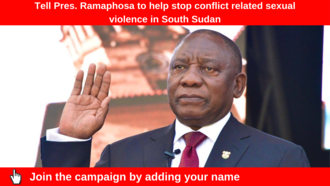

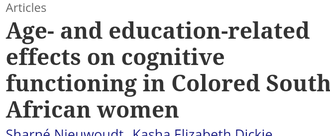
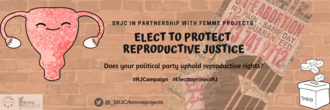
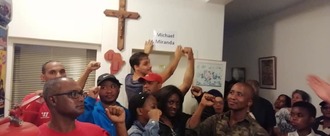
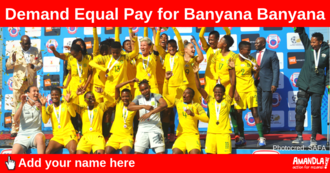.png)
